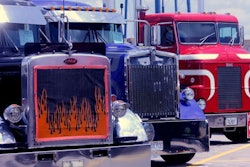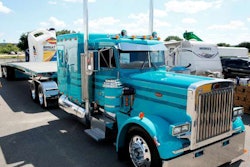A recent amendment introduced to Environmental Protection Agency’s (EPA) proposed Phase 2 environmental standards for heavy trucks and trailers would exempt glider kits from the proposed regulations.
Rep. Diane Black (R-Tenn.) says since glider kits are not technically new trucks, they shouldn’t be held to the same standard.
Brian Harrison, president of Iowa-based Harrison Truck Center, says holding glider kits to the higher standard could have grave implications and could easily lead to heavier regulation of rebuilt equipment.
“Where do you stop,” he asks. “If we can’t take a donor truck off the road and put a glider kit on the road, at what point can (the EPA) come in and say, ‘You can’t rebuild an engine anymore.’ That you need to get an all new engine. Or if they say, ‘If you’re going to rebuild your engine, you need to bring it up to current EPA standards,’ which would be disastrous.”
Black’s amendment calls for no funds to be used in implementation or enforcement of greenhouse gas regulations on glider kits and/or glider vehicles. However, proposed EPA Phase 2 standards, if enacted as a rule, could force glider kits to meet certain standards to improve fuel economy and reduce emissions.
Part of the trouble, Harrison says, is that the EPA has long lumped glider kits into two categories; “good” kits and “bad” kits.
A good glider kit, for example, would be a customer who brings in a wrecked truck but salvages its engine, transmission and axles for installation into a glider kit. A bad glider kit would be someone who purchases those components for installation on a glider kit.
“The bottom line is you still have a donor truck,” Harrison says, noting there shouldn’t be a difference as long as the glider kit is replacing another truck of at least equal EPA standards. “Just because a customer didn’t bring a truck to us that was wrecked, we go out and source our own donor truck.”
“As long as you’re taking a donor truck off the road of equal EPA emission standards, you really shouldn’t have an issue with that,” he adds.
“They’re trying to get all these old engines off the road,” Harrison says. “Over time, engines are going to weed themselves off the road. Just not as fast as they want.”
Roughly 10,000 glider kits are sold annually, and Harrison says failing to offer an exemption for glider kits removes any incentive to purchase or manufacture them, which basically would kill glider kit and related industries.
“You’re talking about thousands of jobs affected, several thousands,” he says. “The assemblers, the manufactuirng plants, the rebuild people … That’s a lot of jobs. Gone.”











